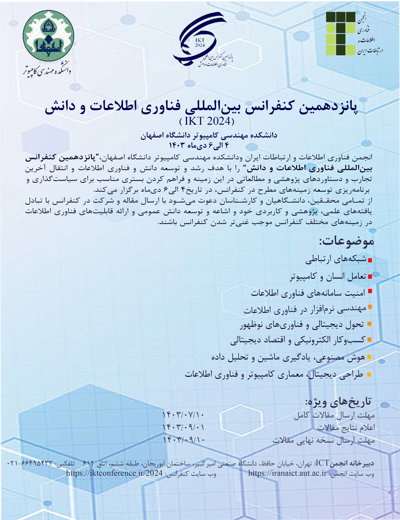0% Complete

نویسندگان :
کلمات کلیدی :
چکیده :
لیست مقالات بایگانی شده
Sanaz Asadinia - Elham Yaghoubi - Mostafa Sadeghi - Mahdi Mehrabi
Rojan Roshankar - Mohammad Reza Keyvanpour
طاهره سرزهی - دکتر مهری رجایی طاهره سرزهی - مهری رجایی -
Dhruvi Pancholi - Nilesh Kumar Jadav - Sudeep Tanwar - Deepak Garg - S. Mohammadali Zanjani
AmirHossein Majd - Mahdi Yousefikia - Saghar Ghasemzadeh - Amirreza Asari - Arya Khoshnavataher - Seyedeh Leili Mirtaheri
Kevin Lano - Shekoufeh Kolahdouz Rahimi
Negin Piri - Ahmad Salehi - Erfan Memarian
Armin Pishehvar - Eghbal Mansoori - Abbas Mehrbaniyan - Reza Tahmasebi
فاطمه مکی زاده - سارا صراف - مصطفی شیرالی
علی روحانی فر - کمال میرزایی بدرآبادی





